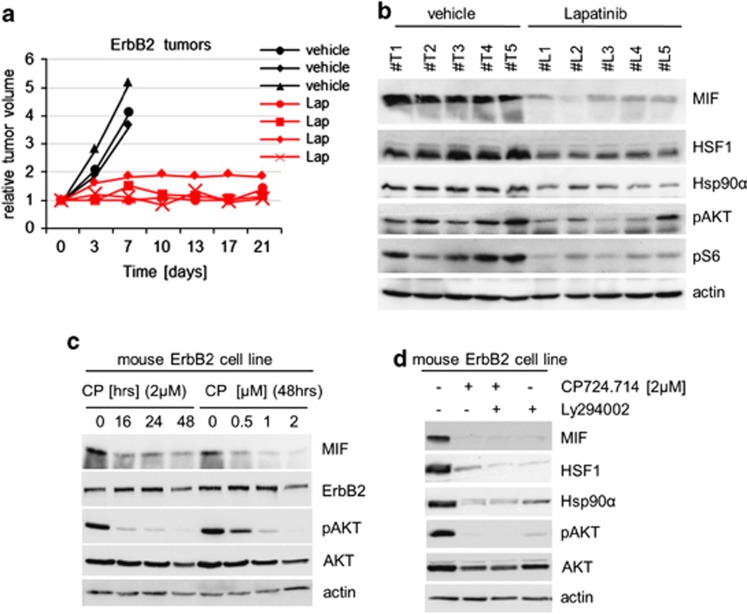Figure 5.
In ErbB2-driven breast cancers in mice, ErbB2 inhibition by Lapatinib inhibits the HSF1-Hsp90-MIF axis and strongly impairs tumor growth. (a) Response to systemic Lapatinib treatment in breast cancer-bearing ErbB2-overexpressing transgenic mice. Time course (in days) of median tumor volumes. Mice with comparably sized spontaneous breast tumors were treated by oral gavage with 100 mg/kg Lapatinib (red lines) or vehicle (black lines) for 5 days per week for 3 contiguous weeks. Tumors were analyzed side-by-side. Response rates of tumors were normalized to their respective starting volume. (b) Lapatinib treatment inactivates the HSF1-HSP90 axis. Immunoblot analysis of lysates of tumors of Lapatinib- and vehicle-treated mice. Actin, loading control. ErbB2/vehicle, five tumors in three mice. ErbB2/Lapatinib, five tumors in four mice. (c) Stable ErbB2-overexpressing tumor cells (derived from a primary mouse MMTV-ErbB2 tumor) confirms HSF1 inactivation and destabilization of HSP90 clients in response to ErbB2 inhibition. Cancer cells were treated in a time- and dose-dependent manner as indicated. Immunoblot analyses for MIF and ErbB2. pAKT is a functional control for ErbB2 inhibition. Actin, loading control. (d) Inhibition of ErbB2 and PI3K leads to inactivation of HSF1 and HSP90. Mouse mammary cancer cells from c were treated with 1 μM CP724.714 or 25 μM Ly294002, alone or in combination as indicated. Immunoblot analysis. pAKT serves as positive control for ErbB2 and PI3K inhibition. Actin, loading control

